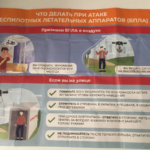Moscow successfully moderates the Tatar-Bashkir conflict: a view from Ukraine

Tatarstan and Bashkortostan, in comparison with the republics of the North Caucasus, are called the main contenders for secession from the Russian Federation. The synergy of the efforts of both republics and nations, aimed at gaining independence, is capable of challenging the very existence of Russia. However, there is still no such synergy. Moreover, the Kremlin is aware of these challenges and is making every effort to direct the energy of these republics and peoples not against Russia, but against each other. Here is what the After Russia Ukrainian analytical public says about this.
Even an outside observer, uninitiated in the history of Tatar-Bashkir relations, is struck by a curious circumstance: with the weakening of Moscow’s international positions, with the deterioration of the socio-economic situation in Russia, with increased sanctions pressure, with the growth of internal problems in the Russian Federation, it is not the confrontation between the Tatars and the Bashkirs with Moscow that escalates, which would be a desirable development of the situation for the supporters of independence, but rather a conflict between the two national movements. What is the reason for this state of affairs?
Shift focus from resistance to showdown
Moscow is afraid that in the event of the military defeat on the Ukrainian front, centrifugal sentiments in Russia will intensify. First of all – in the North Caucasus, in Tatarstan and Bashkortostan. The Kremlin also realizes that the most dangerous situation is when, with the crisis of federal institutions and the loss of control in the regions, the national movements will put pressure on the republican leadership, inclining it to distance itself from Moscow and encouraging it to take on more powers. In other words, the nationalists will not be able to seize power, but they will become “leaven” for public sentiment. Under the influence of nationalists, a process of fermentation can begin in society, which the republican elites will pick up and use it in their own interests, which will coincide in waves with the aspirations of the masses. The situation developed in a similar way in many other former colonies of Russia that came out of its power.
To prevent the realization of this scenario, the Russian special service is working on the decomposition of the national movements of the Tatars and Bashkirs, so that they, at a critical moment, do not represent an organized force. Decomposition is going on in two ways: external and internal. External way is the demonstration to external actors (both in the Russian Federation and abroad) that the Tatars and Bashkirs are not able to agree among themselves, and therefore, to build their own states. Internal way is to discredit in the eyes of the Tatar and Bashkir peoples, who will not take seriously their national movements, that are engaged in exclusively mutual struggle.
Work in both ways was intensified by Moscow after the signing in April 2023 of the Declaration on Mutual Recognition and Cooperation between the Government of Independent Tatarstan in Exile and the Committee of the Bashkir National Movement Abroad. One after another, Tatar and Bashkir commentators torpedo both the document itself and those who put their signatures under the Declaration, Rafis Kashapov and Ruslan Gabbasov.
It is better to be raped than bashkortized*
The Tatars criticize the vision of the independent Bashkortostan put forward by the Committee of the Bashkir National Movement Abroad. According to this project, the Bashkir national movement is heading towards building the political nation, promising the Tatars of Bashkortostan, in exchange for refusing to revise the borders between the republics, the legal functioning of the Tatar political parties, the education system in the Tatar language (including universities), the official status for the Tatar in the north east of Bashkortostan, etc. That is, what the Tatars for the most part do not have today even in Tatarstan.
However, some Tatar figures, such as Ilnar Garifullin, criticize this approach as hypocritical and insincere, they say, there is no faith in the Bashkirs and their promises. The Tatar intellectual Lenar Miftakhov went even further, “If it comes to that, then the dictate of the Moscow Kremlin is better than the dictate of the Bashkir people.” Probably, this phrase is precisely the desired ideal of Tatar-Bashkir relations, to which the Moscow Kremlin is striving so much.
This story has another dimension – a more global one.
It will not be a secret to say that the international community is rather cool about the idea of the disintegration of the Russian Federation. Those politicians and intellectuals (both in the US and in the EU) who are ready to talk about the emergence of new states on the ruins of the Russian Federation state in plain text that the world is more likely to accept the emergence of 4-5 large federations or confederations than 45 new states.
Undoubtedly, federations, like confederations, can only be constructed from independent states, and the emergence of the latter is the starting point in this process. However, the categorical unwillingness of the Bashkirs to discuss at least the outlines of the future unions or confederations, such as Idel-Ural (Ruslan Gabbasov’s statements that “we do not give consent to depict Bashkortostan on the maps of Idel-Ural”), indicate the immaturity of the Bashkir national movement. After all, it is quite difficult to imagine the independent Bashkortostan outside of confederations and military blocs together with other republics of the region. Especially when you consider that the Bashkir national movement in the second year of the Russian-Ukrainian war was never able to form either a partisan movement in Bashkortostan or Bashkir divisions on the side of Ukraine. This fully applies to the Tatar adherents of independence.
Virtual underground and virtual independence
Escape from reality is inherent in both national movements, some kind of unhealthy tilt towards the imaginary resistance. Moreover, there is competition between the virtual resistance of the Bashkirs and the virtual resistance of the Tatars. As soon as the Bashkirs release a layout of their postcard with the image of the fighters of the Bashkir virtual division, the next day the same postcard, only with the Tatar virtual division, is mocked up by the Tatars and also post on the Internet “for distribution in the republic.” The main front of this struggle takes place in Telegram, in Internet referendums for independence, etc.
In practice, the Tatar and Bashkir supporters of independence cannot coordinate even the simplest anti-imperial actions in their republics. For example, in order to destroy (or simply steal) Russian flags from the cities and villages of Tatarstan and Bashkortostan during one night. The action is simple, but daring, political and very indicative. However, neither the Tatars nor the Bashkirs have been able to organize anything of the kind so far.
Naked ambition
Let’s summarize. Neither the Tatars nor the Bashkirs have their own military divisions that fight on the side of Ukraine – something that, for example, the Chechens can boast of. They do not even have elements of the armed underground in their homeland – what, for example, the Ingush have. Some national movements seek to compensate for the lack of a power bloc with a powerful and media diaspora – something that, for example, the Circassians have. However, the Tatars and Bashkirs have big problems with this as well.
What do they have? The desire to speak with Ukraine from the same positions as the Ingush or even more Chechens. To propose to the Verkhovna Rada to adopt some separate resolutions on Tatarstan or Bashkortostan, as was done on the Chechen Republic of Ichkeria (CRI). Although there are no real prerequisites for this in the case of the Tatars and Bashkirs.
We assume that our channel is read by the Tatars and Bashkirs (we know that in both national movements there are those who speak Ukrainian well and read Ukrainian media). We have no goal only to scold the Tatars and Bashkirs. We urge you to consider that the degree of ambition or pretentiousness of statements should correspond to the real state of affairs. Your subjectivity and Ukraine’s willingness to help you directly depend on your ability to struggle with Russia, to bring its disintegration and defeat closer. In this context, the Tatar and Bashkir national movements still differ little from the Veppsian or Saami national movements. Whoever is the first to be able to move from virtual to the real resistance will be able to convert these achievements into political capital, international commitment and support.
*Allusion to the text of the Mina Mazaylo (1929) tragicomedy by Ukrainian writer Mykola Kulish. One of the heroines, Aunt Motya, says, “In my opinion, it is more decent to be raped than Ukrainianized.”


Leave a Reply